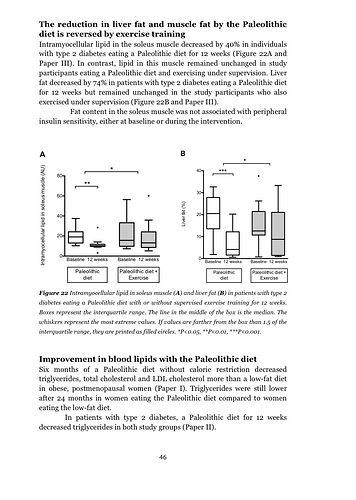From the full paper:
Alternatively, high‐fat feeding promotes overfeeding and a positive fat balance. The surplus of fat is mainly stored in adipose tissue but also in non‐adipose tissue such as skeletal muscle. In this respect, the increase in IMCLs on a high‐fat diet could also simply be seen as an excessive storage of a surplus of circulating FAs. In that respect, it is interesting to note that obese subjects are characterized not only by increased adipose tissue but generally also by increased plasma lipid concentrations and by high IMCL content and low fat oxidative capacity (28). Additionally, in obese subjects with normal fat oxidation, IMCL content was normal too (99). This further suggests that the increase in IMCLs may be simply due to a mismatch between delivery to and oxidative capacity of skeletal muscle.
I don’t agree with the statement that high-fat feeding promotes overfeeding, at least not in the context of a low carb/keto diet, though it seems to be a common misconception outside the low carb community.
But if you are overeating and gaining fat some of that fat will end up in your muscles. And if you are sedentary that fat will accumulate and eventually cause trouble. What this paper didn’t go into is that it is high blood triglycerides that promotes fat uptake in muscle. Eating fat does spike triglycerides just as eating sugar spikes blood glucose. Overeating sugar chronically also raises fasting triglyceride levels. Get it high enough such as seen in metabolic syndrome and type 2 diabetes and you will still drive fat into muscle even if you aren’t “over eating fat”.

